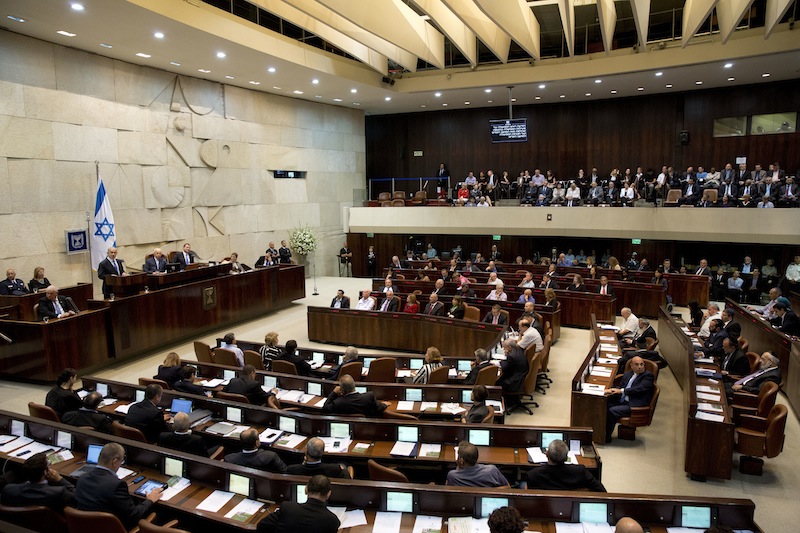VIENNA — Diplomats from the United States and other world powers prepared Monday to put Iran’s new leadership to a critical test during two days of talks that could decide whether the decade-old crisis over the country’s nuclear program can be peacefully resolved.
The negotiations, set to begin Tuesday in Geneva, are the first since June’s surprise election of President Hassan Rouhani, the moderate cleric whose promises of improved diplomatic engagement with the West have raised hopes for progress toward a deal.
U.S. and Iranian officials both sought to lower expectations for the talks while also warning that time for diplomacy could be short. Rouhani faces pressure at home to quickly win relief from economic sanctions that have crippled Iran’s economy, while Israeli officials have threatened a military strike to stop what they see as a steady march to a nuclear weapons capability.
“We’re at a moment of huge magnitude,” said Ambassador William Luers, a veteran U.S. diplomat and a leader of the Iran Project, a group of former State Department and national security officials who advocate a more robust diplomacy to improve ties with Iran.
At issue in the talks is whether the sides can agree on a plan for strict curbs on Iran’s production of nuclear fuel in exchange for gradual lifting of economic sanctions. Rouhani, who faces a political challenge from hard-line conservatives at home, has sent conflicting signals through aides in recent days on what kinds of limits he might be willing to accept.
“Rouhani has to be able to produce, and sooner rather than later,” said Dennis Ross, formerly the Obama administration’s chief adviser on Iran. “He has raised expectations that he will be able to do something about sanctions.”
The Iranian delegation, headed by Foreign Minister Mohammad Javad Zarif, will meet in Geneva with diplomats from the five permanent U.N. Security Council members_the United States, Britain, China, France and Russia, along with Germany _a bloc known as the P5-plus-One. A previous round ended in deadlock in April. Presidential elections in Iran two months later replaced hard-line President Mahmoud Ahmadinejad.
Zarif issued what appeared to be an appeal for Iranian unity in a posting on his Facebook account on the eve of the talks.
“I am sure that the majority of our people, from different political views and factions, have faith in the government’s foreign policy and support us in going after our national interests,” Zarif said in the posting.
U.S. officials expect Iran to present its ideas about how the nuclear controversy could ultimately be resolved, a rough outline that could include a commitment by Iran to halt production of a kind of uranium that can be easily converted to bomb-grade fuel. Western officials are expected to push for still deeper cuts and more intrusive inspections to rule out any possibility that Iran could use its nuclear program to make a bomb. Iran insists that it has no intention of making nuclear weapons.
Abbas Araghchi, a lead member of Iran’s delegation to Geneva, said his country was prepared to make significant concessions. He insisted Iran would never give up its right to make enriched uranium, or allow its uranium stockpile to be moved to a third country.
“Enrichment and transfer of uranium are our red lines,” Araghchi said. “We will never give away any of our rights, which are set under international treaties.”
President Barack Obama has welcomed Iran’s recent diplomatic overtures, capped by a historic phone conversation last month between him and Rouhani during the Iranian leader’s visit to the U.N. General Assembly in New York. But White House officials say they will not agree to significant easing of economic sanctions absent evidence of concrete steps by Iran to roll back parts of its nuclear infrastructure.
The administration faces pressure from Israel as well as skeptics in Congress who believe that Iran is using diplomacy to stall for time. The Senate is poised to approve a measure_already passed by the House_that will impose even deeper restrictions on Iran’s ability to sell its oil. A bipartisan group of 10 U.S. senators, in a letter to Obama on Monday, proposed a “suspension for suspension,” delaying approval of additional sanctions, but only if Iran agrees to fully freeze production of enriched uranium.
In Jerusalem, one senior Israeli official took a positive view of the talks, breaking with other top aides to Prime Minister Benjamin Netanyahu who have denounced Rouhani’s diplomatic outreach as a ruse.
“We want the Geneva talks to succeed, and we don’t want to close the door on a diplomatic solution,” said Yuval Steinitz, Israel’s minister for intelligence and strategic affairs. “But it needs to be a solution that works so that people in the Middle East and in Israel can sleep quietly at night without the fear that Iran will promote the production of nuclear weapons.”
Send questions/comments to the editors.



Success. Please wait for the page to reload. If the page does not reload within 5 seconds, please refresh the page.
Enter your email and password to access comments.
Hi, to comment on stories you must . This profile is in addition to your subscription and website login.
Already have a commenting profile? .
Invalid username/password.
Please check your email to confirm and complete your registration.
Only subscribers are eligible to post comments. Please subscribe or login first for digital access. Here’s why.
Use the form below to reset your password. When you've submitted your account email, we will send an email with a reset code.